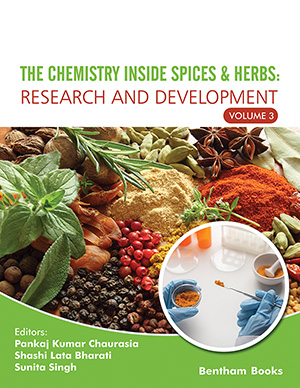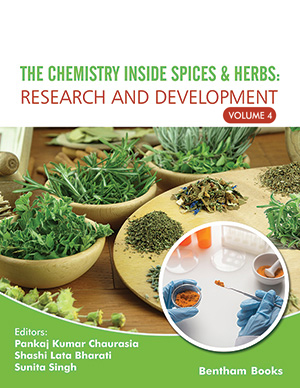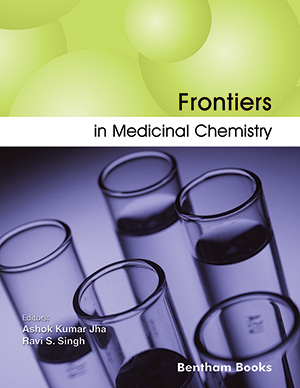Abstract
Background: The chemotherapy modality is generally used for treating colorectal cancer. However, the clinical application of chemotherapeutic drugs may be limited due to their adverse effects on normal cells/tissues and the development of cancer resistance. Using the combined treatment of chemotherapy drugs and natural bioactive compounds (such as resveratrol) can alleviate adverse drug reactions and induce synergies between the drugs.
Objective: In the current review, the potential therapeutic impacts of resveratrol during colorectal cancer chemotherapy were studied.
Methods: Based on the PRISMA guideline, we performed a systematic search in different electronic databases up to May, 2021. Following the search, 321 papers were found and then screened for eligibility. Twenty-seven papers were finally included in the present study
Results: Compared to the control group, the growth inhibition of cancerous cells treated with chemotherapeutic drugs was considerably higher, and resveratrol co-administration synergistically increased chemotherapy-induced cytotoxicity. Moreover, a reduction in the tumor weight, volume and growth of mice was observed following chemotherapy administration compared to the untreated groups, and these reductions were predominant in animals treated with resveratrol plus chemotherapy. Other findings showed that chemotherapy alone and in combination with resveratrol modulated the cell cycle profile of cancerous cells. Furthermore, chemotherapy treatment induced a set of biochemical and histopathological alterations in cancer cells/tissues, and these changes were synergized following resveratrol co-treatment (in most of the cases), excluding inflammatory mediators.
Conclusion: In most cases, resveratrol co-administration could sensitize cancerous cells to chemotherapy drugs through its oxidant, apoptosis, anti-inflammatory activities, etc. Nevertheless, suggesting the use of resveratrol during chemotherapy of colorectal cancer patients requires further clinical studies.
Keywords: Colorectal cancer, chemotherapy, chemosensitizer, resveratrol, systemic review, chemotherapy drugs.
[http://dx.doi.org/10.5114/pg.2018.81072] [PMID: 31616522]
[http://dx.doi.org/10.1007/978-0-387-74039-3_1] [PMID: 17993229]
[http://dx.doi.org/10.1055/s-0035-1564621] [PMID: 26648793]
[http://dx.doi.org/10.1177/1758834011431592] [PMID: 22423266]
[http://dx.doi.org/10.1186/s12935-022-02561-7] [PMID: 35366874]
[http://dx.doi.org/10.1007/s40265-016-0633-9] [PMID: 27568360]
[http://dx.doi.org/10.1093/annonc/mdu260] [PMID: 25190710]
[http://dx.doi.org/10.1093/annonc/mdq222] [PMID: 20555112]
[http://dx.doi.org/10.1634/theoncologist.10-4-250] [PMID: 15821245]
[PMID: 24713845]
[http://dx.doi.org/10.3389/fphar.2017.00109] [PMID: 28352231]
[http://dx.doi.org/10.1016/j.lfs.2020.118051] [PMID: 32634426]
[http://dx.doi.org/10.1111/jphp.12855] [PMID: 29168173]
[http://dx.doi.org/10.3892/etm.2017.4472] [PMID: 28672886]
[http://dx.doi.org/10.3390/antiox9020091] [PMID: 31978952]
[http://dx.doi.org/10.1016/S0009-9120(02)00275-8] [PMID: 11983346]
[http://dx.doi.org/10.1016/S0041-008X(02)00014-5] [PMID: 12583990]
[http://dx.doi.org/10.1038/sj.onc.1207666] [PMID: 15122319]
[http://dx.doi.org/10.1096/fj.04-3582fje] [PMID: 15837718]
[PMID: 12208745]
[http://dx.doi.org/10.1186/1477-3163-5-15] [PMID: 16700914]
[http://dx.doi.org/10.1371/journal.pone.0015627] [PMID: 21209944]
[http://dx.doi.org/10.1093/carcin/bgm144] [PMID: 17675339]
[http://dx.doi.org/10.1093/carcin/bgl055] [PMID: 16675471]
[http://dx.doi.org/10.3748/wjg.v9.i10.2341] [PMID: 14562407]
[http://dx.doi.org/10.1186/1479-5876-7-22] [PMID: 19321006]
[http://dx.doi.org/10.1038/emm.2003.49] [PMID: 14646590]
[http://dx.doi.org/10.1016/j.cbi.2008.11.015] [PMID: 19073162]
[http://dx.doi.org/10.2174/09298673113209990251] [PMID: 23992306]
[http://dx.doi.org/10.1002/biof.1544] [PMID: 31317586]
[http://dx.doi.org/10.1186/s12935-021-02099-0] [PMID: 34289841]
[http://dx.doi.org/10.3892/or.2020.7708] [PMID: 32945472]
[http://dx.doi.org/10.7326/0003-4819-151-4-200908180-00135] [PMID: 19622511]
[http://dx.doi.org/10.1196/annals.1397.047] [PMID: 17404056]
[http://dx.doi.org/10.1002/ijc.24264] [PMID: 19334045]
[http://dx.doi.org/10.1016/j.canlet.2009.06.020] [PMID: 19616374]
[http://dx.doi.org/10.3727/096504011X13079697132844] [PMID: 21936401]
[http://dx.doi.org/10.1159/000331733]
[http://dx.doi.org/10.1124/jpet.112.195768] [PMID: 22895897]
[http://dx.doi.org/10.1016/j.ejphar.2013.09.020] [PMID: 24055188]
[http://dx.doi.org/10.3748/wjg.v19.i42.7374] [PMID: 24259968]
[PMID: 24923109]
[http://dx.doi.org/10.1016/j.jnutbio.2013.04.006] [PMID: 23954321]
[PMID: 25275039]
[http://dx.doi.org/10.1007/s10495-014-0988-x]
[http://dx.doi.org/10.4174/astr.2014.86.2.68] [PMID: 24761411]
[http://dx.doi.org/10.3390/molecules191220054] [PMID: 25470274]
[http://dx.doi.org/10.1016/j.bcp.2015.08.105] [PMID: 26310874]
[http://dx.doi.org/10.3892/mmr.2015.3513] [PMID: 25815689]
[http://dx.doi.org/10.1007/s13277-015-3636-3] [PMID: 26124005]
[http://dx.doi.org/10.1186/s12885-015-1958-6] [PMID: 26674205]
[http://dx.doi.org/10.1038/srep36855] [PMID: 27841296]
[http://dx.doi.org/10.1016/j.bbagen.2016.10.009] [PMID: 27760368]
[http://dx.doi.org/10.3390/nu10070888] [PMID: 30002278]
[http://dx.doi.org/10.18632/oncotarget.25993] [PMID: 30250641]
[http://dx.doi.org/10.1007/s00580-019-02967-2]
[http://dx.doi.org/10.1016/j.phymed.2018.06.046] [PMID: 30668439]
[http://dx.doi.org/10.3390/cancers11121828] [PMID: 31757048]
[http://dx.doi.org/10.1039/C8RA08364A] [PMID: 35520503]
[http://dx.doi.org/10.3390/molecules13081551] [PMID: 18794772]
[http://dx.doi.org/10.1097/00130404-200611000-00008] [PMID: 17207318]
[http://dx.doi.org/10.1007/BF02976946] [PMID: 12433207]
[http://dx.doi.org/10.1155/2021/2951697] [PMID: 34471463]
[http://dx.doi.org/10.1016/j.lfs.2019.117173] [PMID: 31843530]
[PMID: 26600742]
[http://dx.doi.org/10.1126/science.1204117] [PMID: 21778401]
[http://dx.doi.org/10.1016/S1470-2045(15)70013-6] [PMID: 25683846]
[http://dx.doi.org/10.1002/1097-0142(19910101)67:1+<319::AIDCNCR2820671319>3.0.CO;2-D] [PMID: 1984835]
[http://dx.doi.org/10.1517/14656566.2012.643870] [PMID: 22149372]
[http://dx.doi.org/10.3747/co.v18i1.708] [PMID: 21331278]
[http://dx.doi.org/10.1038/onc.2009.356] [PMID: 19881547]
[http://dx.doi.org/10.3390/cancers3011351] [PMID: 24212665]
[http://dx.doi.org/10.1016/j.taap.2012.11.025] [PMID: 23260366]
[http://dx.doi.org/10.1080/17425255.2018.1513492] [PMID: 30118646]
[http://dx.doi.org/10.1038/onc.2011.384] [PMID: 21892204]
[http://dx.doi.org/10.1021/jacs.9b12409] [PMID: 31910340]
[http://dx.doi.org/10.1158/0008-5472.CAN-20-4009] [PMID: 33619118]
[http://dx.doi.org/10.4103/0019-509X.76623] [PMID: 21330749]
[http://dx.doi.org/10.1016/0027-5107(90)90156-X] [PMID: 2233793]
[http://dx.doi.org/10.3109/07357909709047601] [PMID: 9412665]
[PMID: 3793169]
[PMID: 851960]
[http://dx.doi.org/10.1016/S0006-2952(00)00254-9] [PMID: 10736422]
[http://dx.doi.org/10.1016/S0006-2952(97)00321-3] [PMID: 9416969]
[http://dx.doi.org/10.1016/S0006-2952(99)00085-4] [PMID: 10423161]
[http://dx.doi.org/10.1016/j.maturitas.2017.05.010] [PMID: 28545905]
[http://dx.doi.org/10.1016/j.amjsurg.2005.11.009] [PMID: 16531147]
[http://dx.doi.org/10.1007/s11655-009-0415-2] [PMID: 20082245]
[http://dx.doi.org/10.1016/j.bbadis.2014.11.004] [PMID: 25446990]
[http://dx.doi.org/10.1002/jcb.27909] [PMID: 30474871]
[http://dx.doi.org/10.1016/j.lfs.2021.119020] [PMID: 33450258]
[http://dx.doi.org/10.3390/molecules25245875] [PMID: 33322612]
[http://dx.doi.org/10.2174/2210327909666190710103103] [PMID: 31291873]
[http://dx.doi.org/10.1155/2016/1245049] [PMID: 27478531]
[http://dx.doi.org/10.1016/j.lfs.2019.116607] [PMID: 31254582]
[http://dx.doi.org/10.1016/j.cotox.2017.11.002] [PMID: 29862377]
[http://dx.doi.org/10.31557/APJCP.2019.20.6.1675] [PMID: 31244287]
[http://dx.doi.org/10.1016/j.etap.2018.09.008] [PMID: 30290328]
[http://dx.doi.org/10.1080/01926230701320337] [PMID: 17562483]
[http://dx.doi.org/10.1111/j.1471-4159.2004.02855.x] [PMID: 15606891]
[http://dx.doi.org/10.1631/jzus.B1000081] [PMID: 20803769]
[http://dx.doi.org/10.1016/j.bbamcr.2009.04.003] [PMID: 19374923]
[http://dx.doi.org/10.1155/2010/985132] [PMID: 21152266]
[http://dx.doi.org/10.3390/ijms21249739] [PMID: 33419373]
[http://dx.doi.org/10.1016/j.matbio.2015.04.004] [PMID: 25912949]
[http://dx.doi.org/10.1016/j.matbio.2015.01.019] [PMID: 25652204]
[http://dx.doi.org/10.1371/journal.pone.0207255] [PMID: 30500835]
[http://dx.doi.org/10.3390/ijms18122589] [PMID: 29194365]
[http://dx.doi.org/10.1038/sj.onc.1204984] [PMID: 11753656]
[http://dx.doi.org/10.1016/j.canlet.2006.03.032] [PMID: 16709440]
[http://dx.doi.org/10.1038/s41568-019-0216-7] [PMID: 31686003]
[http://dx.doi.org/10.2174/1568009611313030002] [PMID: 23297823]
[http://dx.doi.org/10.1038/cr.2008.18] [PMID: 18227858]































